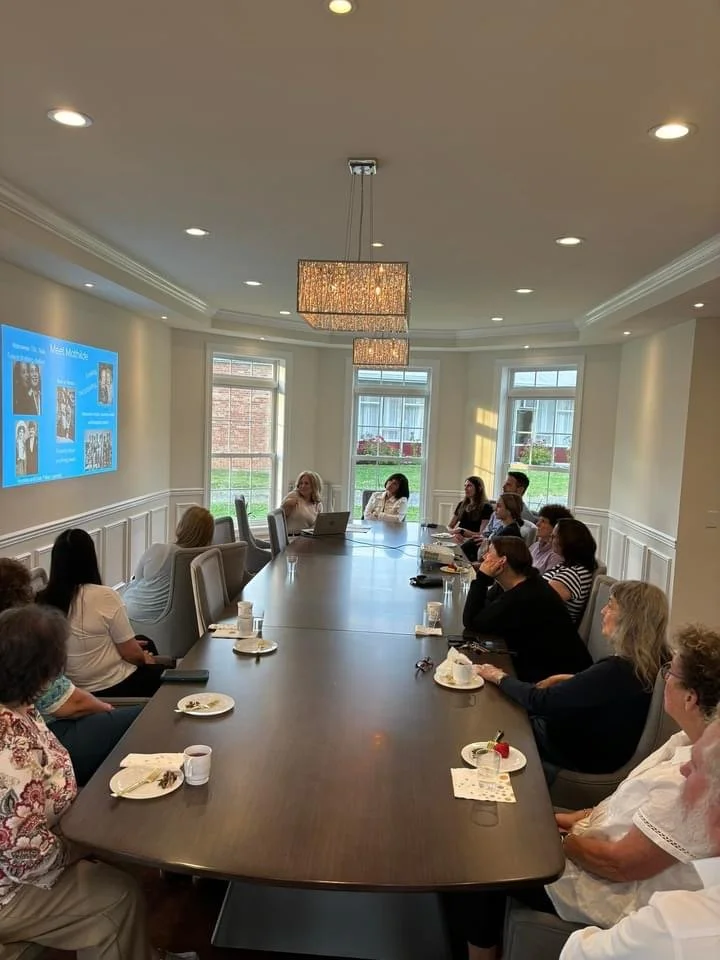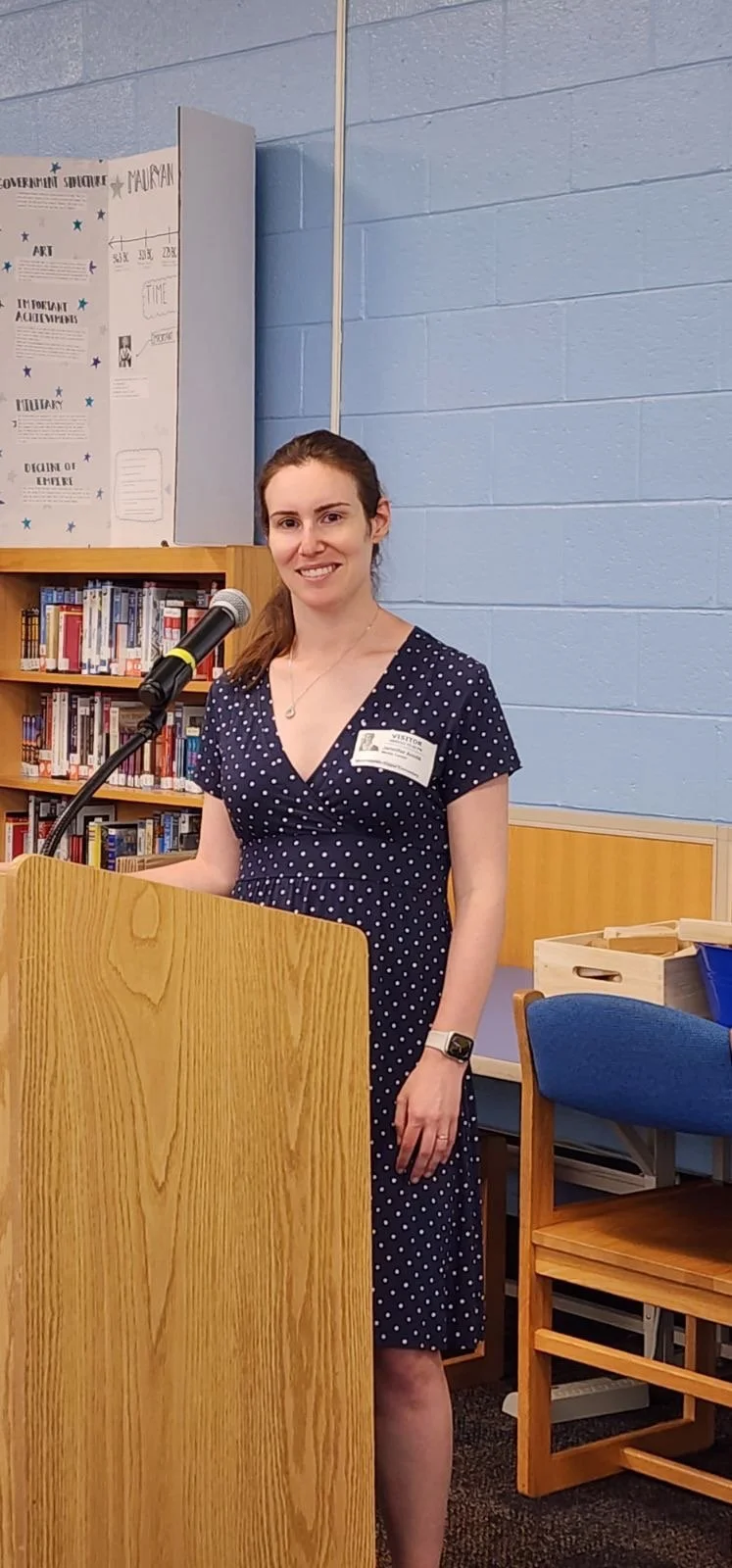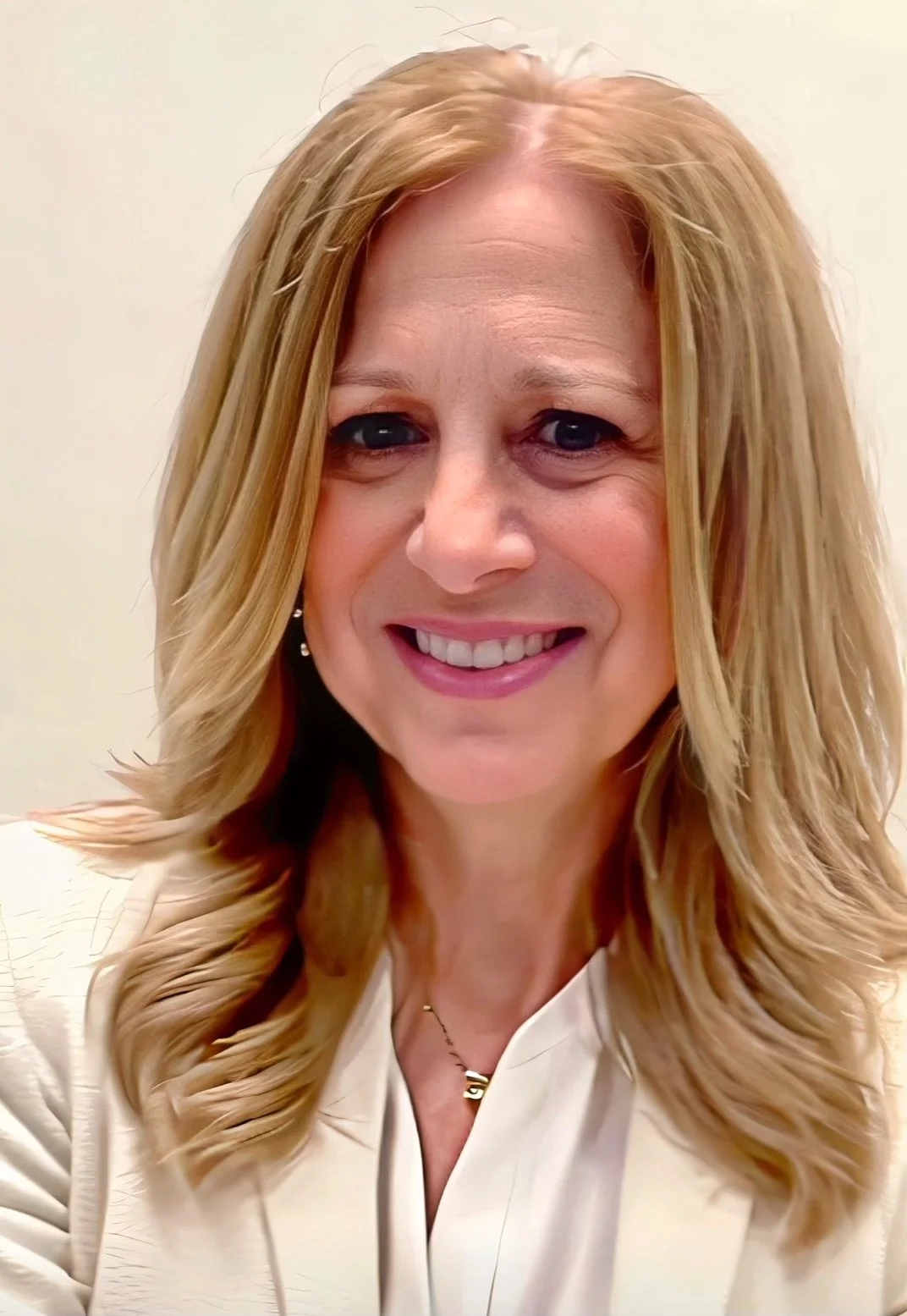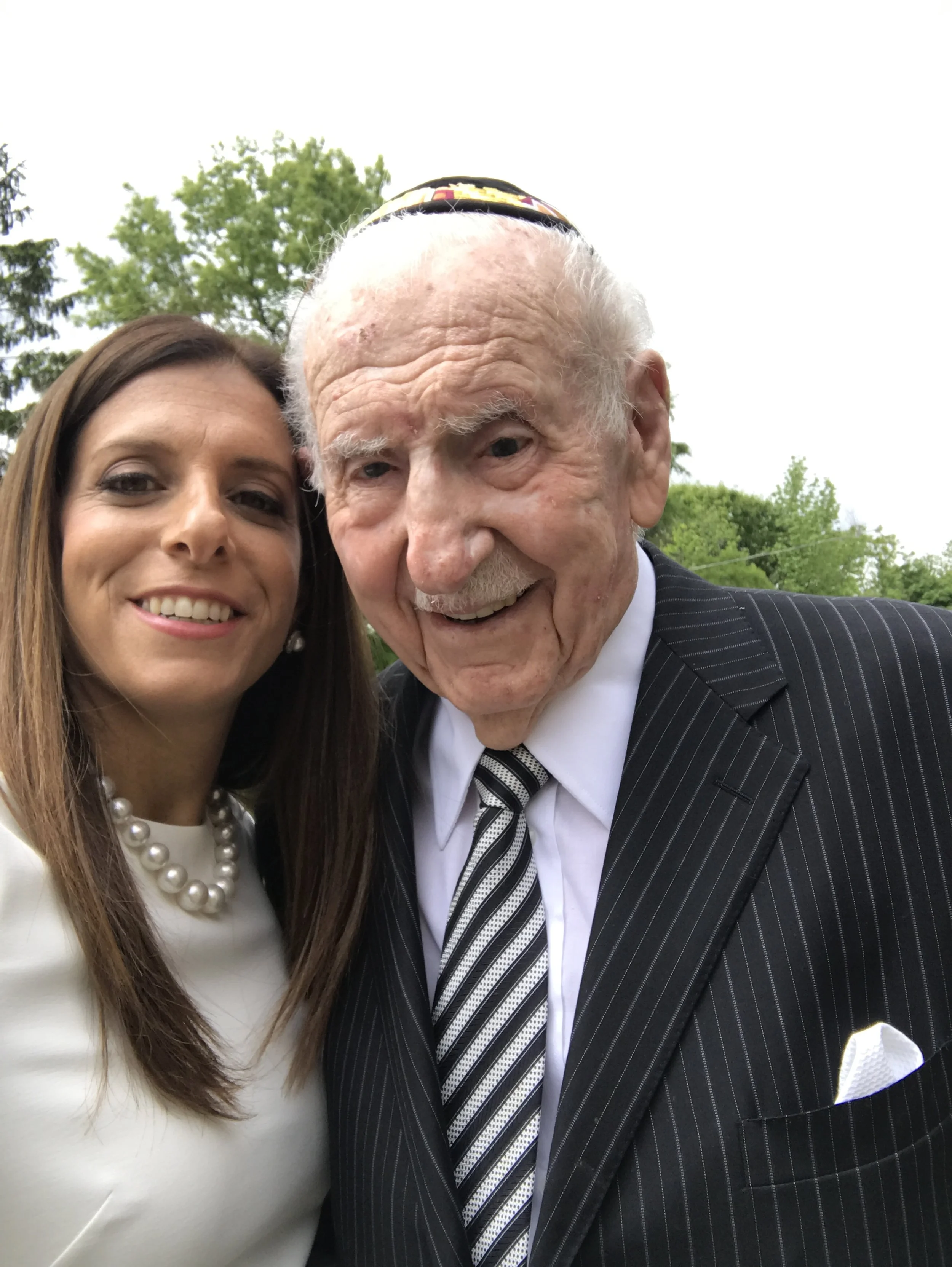
Meet Our Speakers

Ernestine (Erna) Roth was born in Uzhgorod, Czechoslovakia in 1923. She had two older sisters and one younger brother. Erna had a very pleasant childhood. She enjoyed swimming in the river, sleigh riding and biking. On school vacations her family visited her grandparents’ farm where her grandparents grew their own fruits and and vegetables and raised cows.
On April 24, 1944, the day Erna graduated from the gymnasium (equivalent of 12th grade), the Hungarians proclaimed that all Jews had to leave home and report to a lumberyard. Everyone took what they could from their homes. There were no accommodations in the lumberyard, so everyone slept on the ground. They received food once per day. Then, they were taken to the railroad station where everyone was herded into cattle cars. They traveled for 3 days and nights before arriving in Auschwitz.
At Auschwitz, Erna’s father bribed a guard to speak with his daughters one last time. He said, “wherever you go, if they ask if you know how to do something, say yes.” After six weeks at Auschwitz, Erna and her sister Elizabeth were taken to Gelsenkirchen-Horst and then selected to be forced laborers at the Krupp factory in Essen, Germany. They escaped at night during a bomb raid. A German citizen named Fritz Niermann risked his life to hide them in his home until liberation in 1945. Erna stayed in Germany for a couple of years and testified against Alfred Krupp at the Nuremberg Trials. On the ship to the United States she met an American Merchant Marine officer, Bernard Anolik, who would later become her husband. They eventually settled in New Jersey where they had two children and four grandchildren.
Jennifer Anolik is a writer, educator, and 3rd generation holocaust survivor who lives in Northern Liberties, Philadelphia. Along with the 3G board, she also serves on the volunteer steering committee for the Raab/Goodwin Holocaust Museum and Education Center, the organization that helped her grandmother, Erna Anolik share her holocaust experience in schools throughout New Jersey. Jen is the Director of Moving Traditions’ Kol Koleinu fellowship, a year-long program that gives teens across the country the skills to take part in Jewish, feminist social-changemaking.
Sarah is the granddaughter of four Holocaust survivors. Sarah has been volunteering with the 3G Philly organization since 2021. Sarah will be sharing the story of her grandfather, Leo Lesky, who was born in Lodz, Poland. She will share his experience from when he was about 17 years old living in Poland and his experience in Auschwitz, a concentration camp. She will share how he met her grandmother and immigrated to the US with the help of family.
Bari Frydman is a member of 3G Philly and resides in Yardley, Pa. She is a community member of Congregation Beth El of Yardley and a parent of two daughters, one who will graduate from West Chester University and the other who attends University of Delaware. Bari has been a teacher at Hopewell Valley Regional School District for 15 years, after graduating from the University of Pittsburgh with a bachelor degree in Psychology as well as a Master’s Degree in Special Education from University of Phoenix.
Bari is the proud granddaughter of Phillip and Regina Frydman, both survivors of the Holocaust. Phillip and Regina were both born in Poland and were the oldest of their siblings, Phillip the oldest of five and Regina the oldest of four.
Each were the only surviving individuals of their immediate families. Phillip was 16 years old when he was taken from his family and put in a concentration camp and Regina was 13. Regina and Phillip were in work camps located in Poland until they were liberated in 1945. Phillip and Regina met in a displacement persons camp in Germany and married quickly after.
Bari’s father Abraham was born in Germany in 1946 and the family moved to the United States in 1952. The family first came to Washington D.C while waiting for clearance to move to Philadelphia to be with other survivors that had moved to Philadelphia from Germany. Phillip and Regina had two sons, each having two children. Regina had the honor and pleasure of experiencing her four beautiful great grandchildren before her death in 2011.
Alisa Garnek is a member of 3G Philly and resides in the suburbs of Philadelphia. She graduated from the University of Delaware undergrad and has a dual Master of Science degree from Widener University. She is the proud granddaughter of Bella Domb Garnek. Bella was in her late teenage years living in Poland when WWII began. She had a large family with many brother and sisters. She ran from the Nazi’s with her mother, grandmother, aunt, and her three younger siblings. They took nothing with them but the clothes they were wearing.
Bella and family moved along from place to place as each became unsafe. She ended up in a Russian labor camp. The conditions were so poor and food was so scarce, Bella lost her sight for a period of time.
When the war ended, Bella, her grandmother, aunt, and younger siblings took a train to Germany in hopes of finding some normalcy to life. Her parents and older brothers had perished. Immediately upon arrival in Germany, Bella was reconnected with a male friend, Paul, from her hometown. They started dating that day and never left each other’s side for the next 50+ years!
Bella and Paul married and had their first child in 1947 while in a displaced person’s camp. Once they could secure visas, they traveled to Canada where Paul’s brother was living. They had their second child, Eva, and eventually moved to the United States. They were able to open their own grocery store and reside above it. Bella and Paul were eventually able to purchase their own home and send their two children to university.
It was Bella’s last wish for future generations to learn about the Holocaust and her story. Alisa is helping to educate others by sharing her grandmother’s story and carrying on Bella’s last wish.
Stacy La Mell is the proud maternal granddaughter of Holocaust survivors Nuchuum (Nathan) and Rachel Lewin. She grew up with stories of survival alongside the bagels, lox, smoked fish, and corned beef they came bearing on Sundays to her childhood home. One of Nathan’s many favorite aphorisms has been both a guiding influence and a chidah to carry along her path in life: “To know where you are going, you must know where you are coming from.”
Nathan was born September 8th, 1922 in Lodz, Poland, to Fischel and Bluma Lewin. He had two younger siblings, Max and Chana Pyle, and a close-knit extended family. He was captain of his soccer team “Olympia.” He began a small lending library in Lodz with rare and handbound books, bought with his own money. His early life was filled with memories of happy holidays spent with family, music, and plenty of love.
Germany invaded Poland on September 1st, 1939 and occupied Lodz within a week. By Nathan’s 17th birthday on September 8th, his life had changed forever. After being forced to burn his precious library, he was placed under the harsh curfew and restrictions for Jews. Barred from his job as a textile worker, Nathan began helping his family with their local milk delivery business. The German farmers who sold them milk – card-carrying Nazis in theory – began delivering milk closer so the family would not get in trouble for breaking curfew. They couldn’t fathom why such honest, hard working people were suddenly being treated so terribly.
Nuchuum’s family already resided in the section of Lodz that would become the Lodz ghetto. As Jews were deported to Lodz, Nuchuum formulated his escape. After unsuccessfully begging his family to join, he left the ghetto with four friends on November 26th, 1939, hoping to reach the Russian side of the demarcation line. All he had were the clothes on his back, a small bit of bread, and a bar of soap in a knapsack. Upon reaching Bialystok, Nathan was refused entry. He slept in a synagogue with thousands of Jewish refugees, “packed like sardines.” He found his bread wet from the rain and mixed up with soap in his knapsack. He was so hungry, he ate this soggy soapy crust to stay alive.
While in Bialystok, Nuchuum become despondent, homesick, and shouting in the streets. Thankfully an upstander in disguise, a Jewish policeman named “Nuchuum from Yannuck” instead of arresting him or turning him in, arranged temporary room and board. Nuchuum spent nearly a year hustling supplies in Bialystok “enough for something to eat.” He eventually signed a work contract in August 1940 with the Soviet Union and was sent to Magnitogorsk. In this unlikely place, under harsh working conditions and performing backbreaking labor, he was introduced to his future bride, Rachel. They were married shortly after in a simple ceremony in Russia.
After the war, Nathan and Rachel traveled to Poland looking for loved ones and a chance to return to their former lives. After seeing there was nothing left for them in Poland, they were sent to a Displaced Person’s camp in Germany, with their young son Ben in tow. It was here in 1947, eleven years after he had left his family, that Nathan reunited with his brother Max and learned the fate of his sister and parents. After one of the final deportations from Lodz, they had been murdered in gas chambers in the camps. Max and Nathan were overjoyed to reunite, but would soon part ways for another eleven years.
Max and his new wife moved to the US, while Nathan and Rachel immigrated to the newly formed state of Israel. Their daughter Bluma (Betty, Stacy’s mother) was born in a DP camp in Israel in July 1949. After serving in the Israeli army for several years, Nathan moved his family to the United States in 1958, to reunite with his surviving family. They lived in and outside Chicago for the rest of their lives.
Nathan often reflected “I never thought I would live to see another generation of Jews.” His last bit of advice for his grandchildren, as told to his Shoah interviewer in 1995 shortly before his passing, was a cautionary inheritance of diaspora and survival: “They must always remember this, that they are Jewish.”
Being a 3rd generation descendent of Holocaust survivors has deeply impacted Stacy’s life, informing her artwork, writing, and career in nonprofit environmental and social justice work. Stacy is the Director o f School Programs and Urban Youth Initiatives as well as Assistant Director of Summer Camp at Fernbrook Farms Environmental Education Center. She lives in Bordentown, NJ, with her son Diego (a 4G) and her three cats. She completed her 3G WEDU training in 2020, and is grateful to be a part of a vibrant and meaningful community of descendants and survivors. She is always willing to share her Papa’s story with students and any others who are interested, both in-person and virtually.
Cindy Silverman’s grandparents, Karl and Mathilde, were born and raised in Vienna, Austria. She grew up knowing her grandparents were the sole survivors of their families but knew nothing else about their life before they came to the USA. After Mathilde's passing in 1993, a box filled with letters, documents, and photos that shed light on their life in Vienna was found in Mathilde's apartment. However, it wasn't until 2019 when Cindy's family visited Vienna to place memorial stones at her relatives' former residences that they delved into these documents. This archive of information covered the period from the Anschluss until shortly after Karl and Mathilde's arrival in the USA, allowing Cindy to piece together her grandparents' story.
After the Anschluss, many Jews in Vienna, including Karl and Mathilde, became increasingly concerned for their safety and sought opportunities to emigrate. A weekly publication aimed at informing the Jewish community of emigration options advertised a chance for men between 18-35 to flee to a refugee camp in England while they awaited the emigration process.
Karl was one of the earliest refugees (#320/4000) and was among the 100 men at Kitchener Camp whose wives were able to join them. Matilda joined Karl at Kitchener Camp in July 1939 after he secured a domestic position for her. The camp provided them with safety while they awaited their quota number to emigrate to the USA. Sadly, Karl and Mathilde's families were unable to leave Vienna and were deported to Sobibor and Treblinka.
Cindy now resides in Reading, PA with her husband and daughter. She is actively involved with 3G Philly, serving on their board and managing their social media. Cindy is passionate about using her family history to educate others about the Holocaust and the dangers of intolerance. Recently, she was granted Austrian citizenship and is excited to experience a taste of her grandparents' culture. Professionally, Cindy works as a school psychologist, specializing in working with young children facing behavioral challenges.
Stacy Bratt Seltzer is the proud granddaughter of Esther and Sidney Bratt.
Esther was born in Vilna, Poland in 1929. After the Nazis invaded Vilna in 1941, she, her mother and father were forced into the Vilna Ghetto. She spent the next two years living in daily fear with several sliding doors moments that could have ended her life. In 1943, she and her parents were transported from the Ghetto to HaKapeh Labor Camp. She later escaped to a small cellar where she was hidden before being liberated.
Sid was born in Guttstadt Germany in 1928. He was the oldest of four children. After experiencing Kristelnacht first hand, his mother was able to get immigration papers and exit visas to send one of her children on Kindertransport.
At the age of 10, my grandfather boarded the SS Washington to England and lived there during the war. In 1945, at the age of seventeen, my grandfather was reunited with his father in London. They never learned what happened to his mother or siblings.
Stacy has always been conscious of the role the Holocaust played in her family and takes great pride in continuing the legacy that her grandparents have created. Stacy graduated from Muhlenberg College and received her JD from Suffolk University Law School. She hopes that by sharing their stories, she can educate and inspire future generations to learn from her family's history.
Click here to view a presentation Stacy gave with her grandmother by her side.
Randi Stoopler is the proud granddaughter of four Holocaust survivors originating from Poland and first generation born in the USA. Randi and her family live in Southern New Jersey, a suburb of Philadelphia. When Randi joined 3G it was hard to decide which grandparents' story to share- they each are so unique. She chose her maternal grandfather, Simon Birnbaum, as her brother found an author to tell his life's story and Simon was her longest living grandparent. Simon's story is of survival and perseverance of his life in Poland, Israel and eventually the USA.
Randi is very involved in the South Jersey community by serving on the Voorhees Township School Board and Jewish Community Relations Council Board. She also speaks at schools for The Raab Goodwin Holocaust Museum and Education Center.
Sarah Vogel is a Speech Language Pathologist at the Children’s Hospital of Philadelphia. She is the proud mother of three daughters with her husband Jeff. Sarah’s grandparents were Holocaust survivors and immigrated to the United States through HIAS. Sarah is an active leader in the Jewish Federation's Women's Philanthropy where she is currently a vice chair of its Board as well as a Leadership Development Program alumna. Sarah participated and completed the 3GNY WEDU training in the Spring of 2022. Sarah's commitment and gratitude to the Jewish community stems from her belief in and value of Tikkun Olam: dedication to making the world a better place. Never Again. Never Forget.
Click here to view a presentation given by Sarah and her father at Chestnut Hill Community College.
Avi Wisnia is an award-winning singer, songwriter, storyteller, and educator based in Philadelphia. He performs in venues around the world including the Hammerstein Ballroom in New York and The Kennedy Center in DC, with concert tours in Japan, Poland, and Brazil. His latest album of original jazz/pop compositions , titled Catching Leaves," is currently available on all music platforms. He has also given a TED Talk and performed with The Moth storytellers. In recent years, Avi traveled and performed with his grandfather, Holocaust Survivor Cantor David S. Wisnia. Since his grandfather's recent passing, Avi Wisnia continues to share his grandfather's stories and songs of survival, tracing David’s harrowing life journey from young Polish singing star to Auschwitz prisoner to American liberator with the 101st Airborne.
Through it all, Cantor Wisnia’s remarkable singing voice helped save his life, especially in the notorious Nazi concentration camp. The Wisnias most recently traveled together to Poland to commemorate the 75th anniversary of the liberation of Auschwitz, as chronicled in the feature documentary "How Saba Kept Singing." Through sharing his grandfather’s story, Avi highlights the urgency of keeping the memory of the Holocaust alive and passing on this legacy from generation to generation. More information at www.mypolishwisnia.com
“I recently visited Moorestown Upper Elementary where I told the story of how my grandmother survived the Holocaust. The school has been inviting Holocaust survivors and descendents to speak for the last 12 years. When the teacher who organizes all the speakers introduced me to the students, she said “you are here today to have an experience that I hope you will remember for the rest of your lives.”
My grandmother shared her story with school groups for years before she died in 2016. I feel it is my most important responsibility as a third-generation survivor to continue telling her story. I will never be able to tell it exactly as she did, but each time I do, I try to get across the strength and resilience that my grandmother modeled for my whole family.
At a time when antisemitism is on the rise, I find it crucial to make sure that students know that the Holocaust happened, and to teach them to stand up to discrimination and hatred wherever they see it - so they can carry forward the promise of “never again.”
“I was beyond touched with how moved they were to hear from a living link to a Holocaust survivor.”











